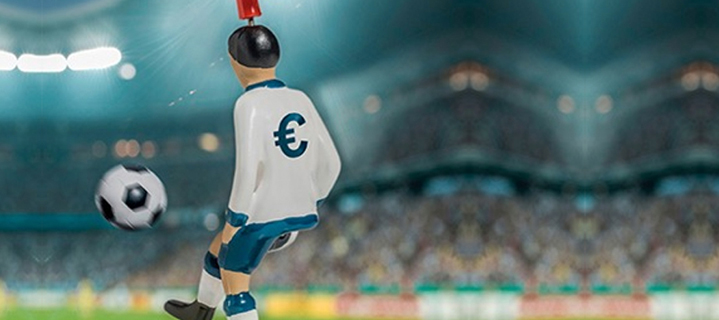Third-party ownership: a risk to integrity?
In December 2014, the FIFA Executive Committee announced that it would ban third-party ownership of footballers from 1 May 2015. Andy Brown explores the perceived risks to integrity it presents, but also what may be lost
Third-party ownership (TPO) agreements allow another entity to become involved during the transfer of a player from one club to another. Under a TPO agreement, the investor will hold a percentage of the economic rights to a player, and the club will usually retain the federative rights (such as the ability to register them with a national association). When a player that is owned under a TPO agreement is sold to another club, the investor will receive a percentage of the fee.
TPO is largely a Latin American phenomenon. A third-party owner will often pay promising young players coming from poorer backgrounds, such as the favelas (Brazilian slums), for the right to represent them in contract negotiations, in return for a stake in any future transfer. The player benefits from this arrangement because they are paid. Clubs often view TPOs as similar to a finder’s fee. As the club will only take a percentage of the player’s sale value, it is often not worth selling them until that percentage becomes large enough to warrant attention, allowing them to keep talented players, who might otherwise be sold, at the club.
However, TPO is also used by clubs in Europe, primarily Portugal and Spain, to buy players that they might not otherwise be able to afford, owing to one or two major clubs dominating the league. During the 2013/14 season, Atlético Madrid won Spain’s La Liga – reaching the final of the UEFA Champions League, breaking Real Madrid and FC Barcelona’s domestic rule. Although the club is heavily in debt, it recruited a number of players using TPO. Whether or not this is good depends on if you have a romantic view of underdogs.
In 2011, the English Premier League notified UEFA that the Premier League’s ban on TPO agreements could put it at a competitive disadvantage compared with other European clubs. This is because when buying a player, a Premier League club would have to account for the whole of the transfer fee when submitting their records to be assessed by UEFA for compliance with its Financial Fair Play regulations. This is in contrast to non-Premier League clubs, which would only have to detail the amount spent in taking a stake in a player, which could be, for example, 50 per cent of the fee.
An extreme example of this is demonstrated by the transfer of goalkeeper Roberto Jiménez Gago from Benfica to Real Zaragoza during the 2011 summer transfer window. Zaragoza, which was in administration at the time, paid just €86,000 of the €8.6 million transfer fee, as the deal was almost entirely subsidised by a football investment fund. It is perhaps easy to understand the Premier League’s argument that such deals distort competition.
Another more recent example of how TPO can influence a transfer is Marcos Rojo’s €20 million move from Sporting Lisbon to Manchester United last year. Sporting Lisbon President Bruno de Carvalho indicated that the club did not want to sell the player, but was pressured to by Doyen Sports, which reportedly owned 75 per cent of the economic rights to the player. Doyen Sports sold the economic rights to the player when he went to England. Supporters of a TPO ban would point to how this moved large sums of money out of the game – and into private hands.
A 2013 study conducted by accountancy firm KPMG estimates that the market share of players under TPO agreements in Europe’s leagues is between 5.1 per cent and 7.8 per cent. However, many Latin American leagues are structured around TPO, and will use clubs in countries with linguistic links, such as Spain and Portugal, as a gateway to export footballers to Europe. According to FIFA’s Transfer Matching System, 512 Brazilians were transferred between 1 January and 25 February 2015 – double that of rival Argentina.
”In 2013, according to the FIFA database, agents received $216 million from clubs in commission arising out of international transfers, writes Eduardo Carlezzo, an attorney with Carlezzo Advogados Associados, in World Sports Law Report. ”Brazilian clubs, in the same year, earned $312 million from international player transfers. An expected consequence of these numbers would be a large amount of money being paid by Brazilian clubs to agents. Surprisingly, the Brazilian clubs declared on FIFA’s electronic Transfer Matching System (TMS) that they paid only $400,000 in agent fees. It has to be underlined that the TMS only accepts payments to licensed agents. Therefore, it is clear that the Brazilian clubs have been paying a lot of money to non-licensed agents and these amounts are not included in the declarations on FIFA’s TMS. This constitutes financial evidence that, in Brazil, the agent licensing system was not working properly.
The whole debate over TPO might have never happened, had it not been for West Ham Football Club. In 2007, West Ham was charged by the Premier League for failing to disclose third-party agreements relating to Carlos Tevez and Javier Mascherano. At the time, the Premier League did not ban third-party ownership of players as such, but banned agreements that allowed outside bodies to influence the performance of its teams.

